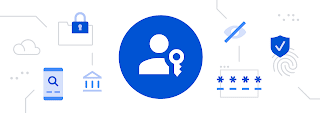Passkeys need to be enabled manually, and the option is already available. If you're using Gmail, click on your profile photo > manage your Google account > security > Passkeys. The feature works on both Android and iOS. You can use it on Windows PCs with a fingerprint scanner integrated into the keyboard. Otherwise, there are external Passkeys available that works like a pen drive. When you do, Google will not ask for your password or 2-Step Verification (2SV) when you sign in.
Google explains Passkeys are a more convenient and safer alternative to passwords. They work on all major platforms and browsers and allow users to sign in by unlocking their computer or mobile device with their fingerprint, face recognition or a local PIN.
From a security standpoint, Passkeys can also prevent cyberattacks to an extent, since your password cannot be easily compromised. Google explains:
"Unlike passwords, passkeys can only exist on your devices. They cannot be written down or accidentally given to a bad actor. When you use a passkey to sign in to your Google Account, it proves to Google that you have access to your device and are able to unlock it. Together, this means that passkeys protect you against phishing and any accidental mishandling that passwords are prone to, such as being reused or exposed in a data breach."
Since passkeys are stored on the device itself, you can create multiple passkeys for several devices. It means you can create a passkey for tablets, smartphones, and PCs, though the password is technically the same, which is your biometric scan.













